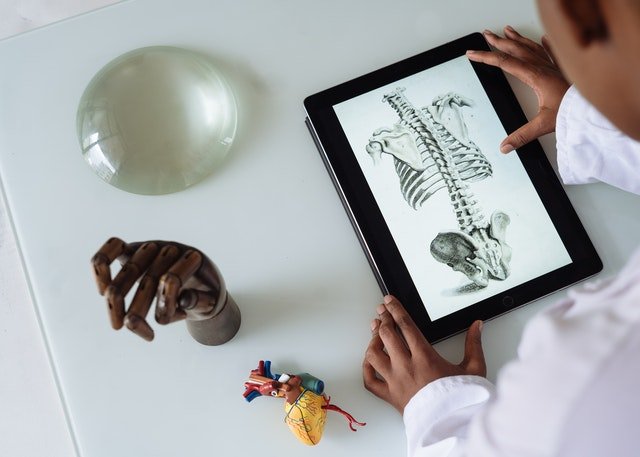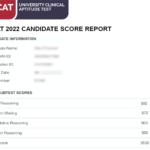It is Medical School MMI Interview season again with MMI Interviews and Panel Interviews being scheduled in December and the new year- I know how you feel you just want it to be over !!!
UCAT and BMATs have been completed and everyone is in the middle of their mocks. The past two years have been nightmarish with COVID doing its utmost to distract you from your goal of getting into medical school. The journey has been long and arduous but will be worth if it as long as you get that offer letter in your hand.


The Medical School Interview is the Biggest Hurdle to Your Offer
The final hurdle, of course, is the medical school interview and it is arguably one of the hardest. Students wanting to pursue medicine are generally very academic (could we even say a bit nerdy !) and these leads them to be a little bit underdeveloped in their communication skills. Developing these skills is no easy feat – you can’t just open up a book and read about it you need to – actually I should say MUST – practice these skills at every opportunity possible. From the grocers to the bus stop getting into general conversations to practice putting your point across is key.
The final hurdle, of course, is the medical school interview and it is arguably one of the hardest. Students wanting to pursue medicine are generally very academic (could we even say a bit nerdy !) and these leads them to be a little bit underdeveloped in their communication skills. Developing these skills is no easy feat – you can’t just open up a book and read about it you need to – actually I should say MUST – practice these skills at every opportunity possible. From the grocers to the bus stop getting into general conversations to practice putting your point across is key.
Communication Model Types for Your Medical School MMI Interview
Linear communication is when the communicator relays information to a receiver – an MMI Interview can become a little like this so be prepared to be the one doing most of the talking. Interactive communication is two way – much more conversational and definitely what you want to get to in either a panel or MMI format of an interview. Transactional is much more about getting what you want out of a conversation and providing the receiver with the information they want base don their cues so that you achieve your ultimate aim – a medical school offer !!!
Communication Models for Your Medical School Interview
I’m going to go into some theory which I know you medical boffins will absolutely love. There are eightish communication models and three model types – be summed up as below:
| Communication Model | Model Type | Brief Description | |
|---|---|---|---|
| 1. | Aristotle’s Model | Linear |
Looks at the five elements of a communication event and attempts to analyze each to determine the best way to communicate: speaker, speech, occasion, target audience and effect. Generally the communicator is trying to influence the receiver with the information and have them either understand or agree with the communicators view. |
| 2. | Lasswell’s Model | Linear |
A basic framework for analyzing one-way communication by asking: Who, said what, through which channel, to whom, with what effects? Similar to model number one but formalises asking what effect the communication will have on the receiver. |
| 3. | Shannon-Weaver Model | Linear | The ‘noise’ in communication, can disrupt or alter a message between sender and receiver – Chinese whispers takes this a step further and shows when ideas are repeatedly communicated they can even be fundamentally altered. The noise can be either from the environment or even the pronunciation of the sender or if the message was simply misheard by a non-attentive receiver. |
| 4. | Berlo’s S-M-C-R Model | Linear | Breaks up communication into four steps: Source, Message, Channel, and Receiver. Simply explains the process of relaying a message. |
| 5. | Osgood-Schramm Model | Interactive | Looks at reciprocal communication and explains the process of understanding, or encoding, information then decoding it and interpreting during a conversation. Context and past experiences are all key to the way a message is understood and have a large bearing on what response will be given. |
| 6. | Westley and Maclean Model | Interactive | This model shows how communication is influenced by environmental, cultural and personal factors – brings in the contextual aspects of a conversation and the bias that inevitably exists due to an individuals own experiences. |
| 7. | Barnlund’s Transactional Model | Transactional | Highlights the role of private and public cues that impact our messages – and this is how communication is altered to fit the receiver and our own goal – and its done in the middle of a conversation !! |
| 8. | Dance’s Helical Model | Transactional | Thinks of communication as a circular process getting more complex as communication occurs which shows the more we discuss something the more likely we will go into further detail. |
Now the above is great but how many people even think about these different communication models? How many teachers or salesmen have actually studied this area? Probably very few….. so how have they become such good communicators?
Practice, Practice, Practice
Practice, practice, practice – now with practice you also need feedback – there is no point practicing a skill if you have no idea what “good” looks like. You need some expert feedback on your MMI Interview – or someone to model – so that you can accelerate your learning. You need an expert to identify and be honest about the way you come across; from your introduction, to your body language, to your tone, to your vocabulary, to your critical language etc…. You also need to have models – or I would say a structure to the way you respond to interview questions – a layered response from broad to narrow helps get your overall message across and provide the necessary detail.
YouTube has loads of information on model answers and actual MMI interview mocks but what you really need is specific tailored feedback from a real person at a price that doesn’t break the bank. The problem with family friends who are doctors is they don’t really remember what they did or in their day they didn’t need to do that much ! I sincerely wish you all the best in your medical school interviews but I believe that even by getting feedback even once from my site your understanding and performance may improve by 50% – the mocks run by universities are good but you never really know how to move forward and what you need to do to improve. The feedback you’ll get from me will help put you onto another level.
Click here to get expert feedback now on your medical school interview.






